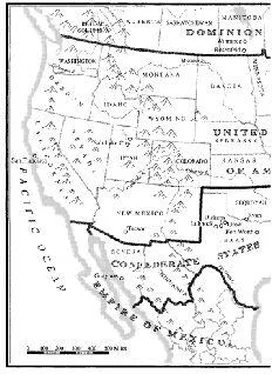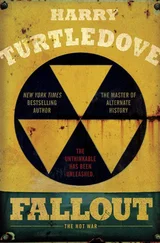Harry Turtledove - Walk in Hell
Здесь есть возможность читать онлайн «Harry Turtledove - Walk in Hell» весь текст электронной книги совершенно бесплатно (целиком полную версию без сокращений). В некоторых случаях можно слушать аудио, скачать через торрент в формате fb2 и присутствует краткое содержание. Жанр: Альтернативная история, на английском языке. Описание произведения, (предисловие) а так же отзывы посетителей доступны на портале библиотеки ЛибКат.
- Название:Walk in Hell
- Автор:
- Жанр:
- Год:неизвестен
- ISBN:нет данных
- Рейтинг книги:3 / 5. Голосов: 1
-
Избранное:Добавить в избранное
- Отзывы:
-
Ваша оценка:
- 60
- 1
- 2
- 3
- 4
- 5
Walk in Hell: краткое содержание, описание и аннотация
Предлагаем к чтению аннотацию, описание, краткое содержание или предисловие (зависит от того, что написал сам автор книги «Walk in Hell»). Если вы не нашли необходимую информацию о книге — напишите в комментариях, мы постараемся отыскать её.
Walk in Hell — читать онлайн бесплатно полную книгу (весь текст) целиком
Ниже представлен текст книги, разбитый по страницам. Система сохранения места последней прочитанной страницы, позволяет с удобством читать онлайн бесплатно книгу «Walk in Hell», без необходимости каждый раз заново искать на чём Вы остановились. Поставьте закладку, и сможете в любой момент перейти на страницу, на которой закончили чтение.
Интервал:
Закладка:
A lot of them, of course, the younger ones, had been reconscripted since the war broke out. Others had proved useful in other ways: serving as additions to the New York City police, for instance, after the Mormons and Socialists had touched off the Remembrance Day riots this past spring. And some of them, like this chap, liked to throw their weight around.
“Sir, why don’t you just leave this man alone?” Morrell said. The words were polite. The tone was anything but. At his side, Captain Abell nodded.
“He’s a damned foreigner,” the Soldiers’ Circle man exclaimed. “He’s almost certainly not a citizen. He doesn’t look like he ought to be a citizen, the stinking wog. Are you a citizen?” he demanded of the Greek.
“Not your gamemeno business what I am,” the foodseller answered, bolder than he had been before he had anyone on his side.
“You see? He doesn’t hardly speak English,” the Soldiers’ Circle man said. “Ought to put him in a leaky boat and ship him back to where he came from.”
“I got son in Army.” The Greek shook his finger at the fellow who was harassing him. “In Army to do fighting, not to play games like you was. Paul is sergeant-I bet you never got no stripes.”
The Soldiers’ Circle man went bright red. Morrell would have bet that meant the Greek had scored a bull’s-eye. “Why don’t you take yourself somewhere else?” Morrell told the dedicated patriot. Muttering under his breath, the corpulent fellow did depart, looking angrily back over his shoulder.
Morrell and Abell waved off the foodseller’s thanks and headed up Chestnut again, toward the War Department. “Those Soldiers’ Circle men can be arrogant bastards,” Abell said. “He was treating that fellow like he was a nigger, not just a dago or whatever the hell he is.”
“Yeah,” Morrell said, “and a Confederate nigger at that.” He checked himself. “The other side to that coin is, the niggers down in the CSA are giving the white folks there a surprise or two.”
“You’re right,” Abell said. “Now what we have to do is see how we can best take advantage of it.”
Morrell nodded. Taking advantage of the enemy didn’t come easy, not when machine guns knocked down advances before they could get moving-assuming artillery hadn’t already done that before soldiers ever came out of the trenches.
He sighed. An awful lot of U.S. officers-including, as far as he was concerned, too many on the General Staff-didn’t, maybe couldn’t, think past slamming straight at the Rebs and overwhelming them by sheer weight of numbers. The USA had the numbers. Using them effectively was proving to be a horse of another color.
You went into General Staff headquarters through what looked like, and once had been, a millionaire’s mansion. Morrell had always doubted that that fooled the Confederate spies surely haunting Philadelphia, but nobody’d asked his opinion. Inside, a sober-faced sergeant checked his identification and Abell’s with meticulous care, comparing photographs to faces. Bureaucracy in action, Morrell thought: the noncom saw them every day.
After gaining permission to enter the sanctum, they went into the map room. Abell pointed to the map of Utah, where U.S. forces had finally pushed the Mormon rebels out of Salt Lake City and back toward Ogden. “That was your doing, more than anyone else,” he said to Morrell, half admiring, half suspicious.
“TR listened to me,” Morrell said with a shrug. Instead of straight-ahead slugging, he urged attacks through the Wasatch Mountains and from the north, to make the Mormons have to do several things at the same time with inadequate resources. He’d proposed that to the brass on arriving here. They’d ignored him. A chanced meeting with the president had revived the plan. Unlike a lowly major, TR could make the General Staff listen instead of trying without any luck to persuade it.
Except for the soldiers actually fighting there (and perhaps except for the resentment higher-ups in the General Staff might show against him for being right), Utah was old news now, anyhow. Morrell looked at a new map, one that had gone up only a few days before. On it, the Confederacy, especially from South Carolina through Louisiana, seemed to have broken out in a bad case of the measles, or maybe even smallpox.
He pointed to the indications of insurrection. “The Rebs will have a jolly time fighting their own Negroes and us, too,” he said.
“That’s the idea,” John Abell said. Both men smiled, well pleased with the world.
Scipio was not used to wearing the coarse, colorless homespun shirt and trousers of a Negro laborer. As butler at the Marshlands mansion, he’d put on formal wear suitable for a Confederate senator in Richmond, save only that his vest was striped and his buttons made of brass. He wasn’t used to sleeping in a blanket on the ground, either, or to eating whatever happened to come into his hands, or to going hungry a lot of the time.
But he would never be butler at Marshlands again. The mansion had gone up in flames at the start of the Marxist revolt-the mostly black revolt-against the Confederate States. If the Congaree Socialist Republic failed, Scipio would never be anything again, except a stinking corpse and then whitening bones hanging from a tree branch.
The headquarters of the Congaree Socialist Republic kept moving, as the Confederates brought pressure to bear against now one, now another of its fluid borders. At the moment, the red flags with the broken chains in black flew over a nameless crossroads not far north of Holly Hill, South Carolina.
Cassius came up to Scipio. Cassius had worn homespun all his life, and a shapeless floppy hat to go with it. He had been the chief hunter at Marshlands, and also-though Scipio hadn’t known of it till after the war with the USA began, and had learned only by accident then-the chief Red. Now he styled himself the chairman of the Republic.
“How you is, Kip?” he asked, the dialect of the Congaree thick as jambalaya in his mouth. But he did not think the way white folks thought their Negroes thought: “Got we anudder one fo’ revolutionary justice. You is one o’ de judges.”
“Where he is?” Scipio asked. When talking with his fellows, he used the Congaree dialect, too. When talking with whites, he spoke standard English better than almost any of them. That had already proved useful to the Congaree Socialist Republic, and likely would again.
“Here he come,” Cassius answered, and, sure enough, two young, stalwart black men were hustling along a short, plump white. His white linen suit was stained with smoke and grass; several days of stubble blurred the outlines of what had been a neat white goatee. In formal tones, Cassius declared, “De peasants an’ workers o’ de Congaree Socialist Republic charges Jubal Marberry here wid ownin’ a plantation an’ wid ’sploitin an’ ’pressin’ he workers on it-an’ wid bein’ a fat man livin’ off what dey does.”
Two others came up beside Scipio to hear the case, not that there was much case to hear at one of these revolutionary tri-bunals. One was a woman named Cherry, from Marshlands, whose screams had helped touch off the rebellion there. The other was a big man named Agamemnon, who had labored at Marberry’s plantation.
He spoke to his former boss-probably his former owner, too, since, like Scipio, he was past thirty: “You got anything to say befo’ the co’t pass sentence on you?”
Marberry was old and more than a little deaf; Agamemnon had to repeat the question. When he did, the white man showed he had spirit left: “Whatever you do to me, they’ll hang you higher than Haman, and better than you deserve, too.”
“What is de verdict?” Cassius asked.
Читать дальшеИнтервал:
Закладка:
Похожие книги на «Walk in Hell»
Представляем Вашему вниманию похожие книги на «Walk in Hell» списком для выбора. Мы отобрали схожую по названию и смыслу литературу в надежде предоставить читателям больше вариантов отыскать новые, интересные, ещё непрочитанные произведения.
Обсуждение, отзывы о книге «Walk in Hell» и просто собственные мнения читателей. Оставьте ваши комментарии, напишите, что Вы думаете о произведении, его смысле или главных героях. Укажите что конкретно понравилось, а что нет, и почему Вы так считаете.












